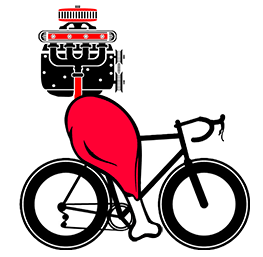Music Provided No Actual Performance or Ergogenic Benefits
Listening to self-selected motivational music conferred no actual performance benefits or changes during a simulated 10km competitive time trial.
A recent study evaluated the effects of listening to self-selected motivational music during a 10km cycling time trial in well-trained cyclists. The cyclists performed the time trial on two separate occasions, once while listening to their chosen music and once without auditory input.
The study found no significant differences in performance or physiological measures between the music and non-music time trials. Time to complete the time trial, average and peak power output, peak heart rate, peak blood lactate levels, and ratings of perceived exertion were similar with and without music.
For endurance athletes, the results suggest that listening to motivational music during high-intensity competition may provide no direct performance benefit or detriment. While music could positively impact some psychological factors like motivation or mood, any effects do not appear to translate into concrete benefits for time, power, or physical effort at competitive intensities. However, the study only evaluated self-selected music, so different music types or volumes may produce different results.
In summary, a study found well-trained cyclists performed similarly with or without self-selected motivational music during a simulated 10km time trial. No meaningful differences occurred in speed, power, heart rate, lactate, or perceived effort. The results indicate music likely provides no performance advantage for endurance athletes during events at competitive intensities, though more research is needed.
For athletes, using music during intense competition may come down to individual preference since performance is unlikely to be directly affected. However, as a training tool, music could still potentially enhance mood and motivation to gain psychological benefits on long workouts or intervals. But in competition settings, the demands of the event itself tend to override any impacts, positive or negative, from music. An athlete’s focus and motivation comes primarily from within rather than external factors like background sounds.
In the end, whether or not to employ music is an individual choice for the athlete. But performance outcomes will be predominantly determined by the athlete themselves, not by what they’re listening to. Music should not be relied upon as an “ergogenic aid” for competitive endurance athletes.
Note that older studies structured different ways and attempting to measure different results have found varying results. Also, be safe. Never block you ability to hear and be safe in group cycling are non-closed loop environments.
Abstract
The Effect of Music on 10-km Cycle Time-Trial Performance
Music is widely used as an ergogenic aid in sport, but there is little evidence of its effectiveness during closedloop athletic events. In order to determine the effectiveness of music as an ergogenic aid, well-trained and task-habituated cyclists performed 10-km cycle time trials either while listening to self-selected motivational music or with auditory input blocked. There were no statistically significant differences in performance time or physiological or psychological markers related to music (time-trial duration 17.75 ± 2.10 vs 17.81 ± 2.06 min, mean power output 222 ± 66 vs 220 ± 65 W, peak heart rate 184 ± 9 vs 183 ± 8 beats/min, peak blood lactate 12.1 ± 2.6 vs 11.9 ± 2.1 mmol/L, and final rating of perceived exertion 8.4 ± 1.5 vs 8.5 ± 1.6). It is concluded that during exercise at competitive intensity, there is no meaningful effect of music on either performance or physiology.
International Journal of Sports Physiology and Performance
Authors: Jana Hagen, Carl Foster, Jose Rodríguez-Marroyo, Jos J. de Koning, Richard P. Mikat, Charles R. Hendrix, and John P. Porcari
https://doi.org/10.1123/ijspp.8.1.104
Listen to the Two Minute Study Summary

Jordan Fowler has experience as a head swimming coach of the Frisco Swim Team, a TAAF-awarded coach, a track and field distance running consultant for select Texas High School runners, and has competed as a triathlete, road runner, and cyclist. Though he is remarkably slower than he was in his 20s and 30s, he still enjoys endurance sports and sports science studies.
